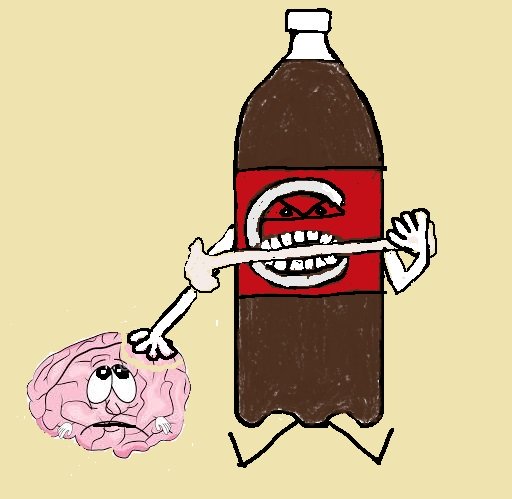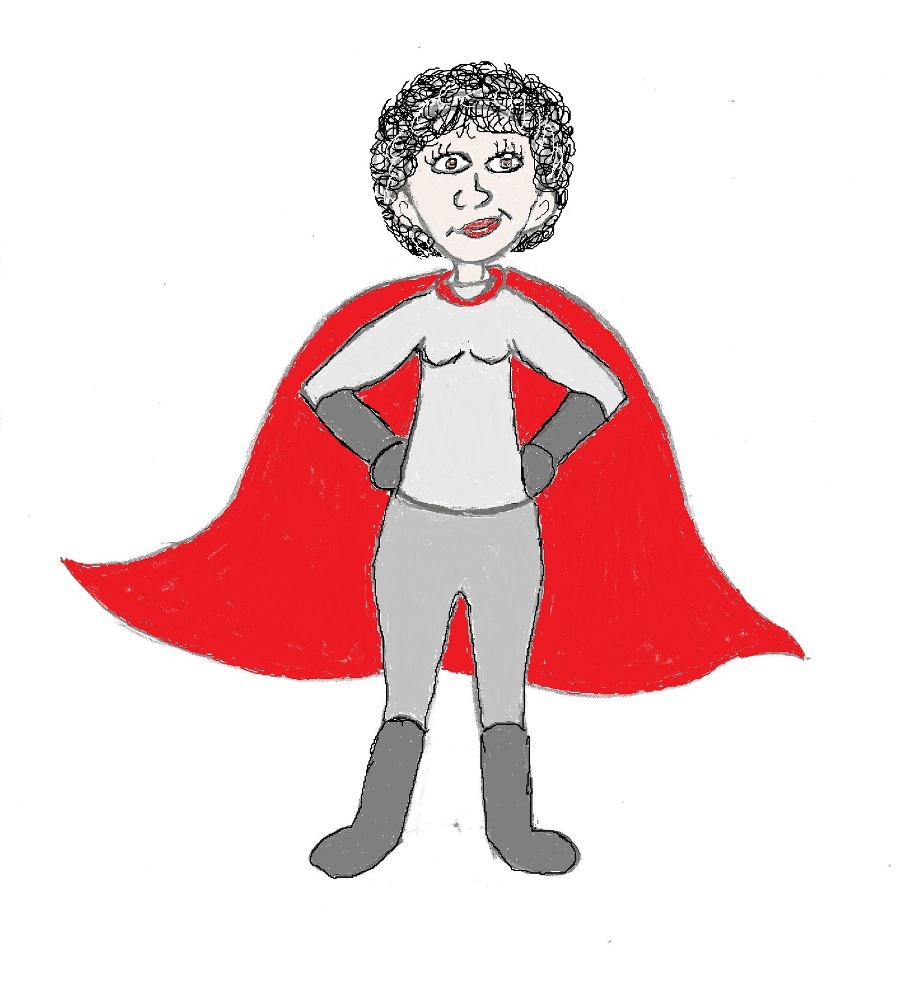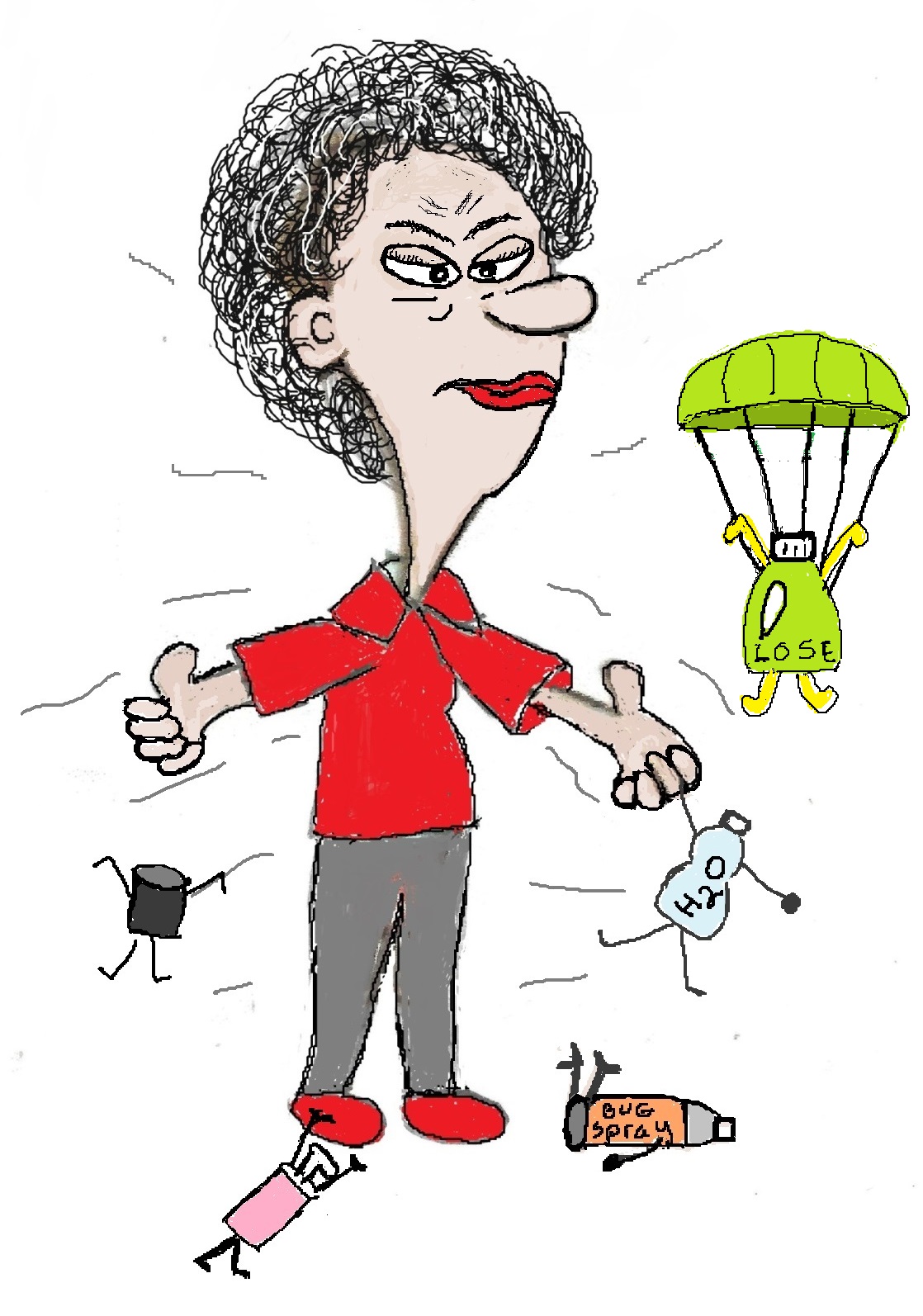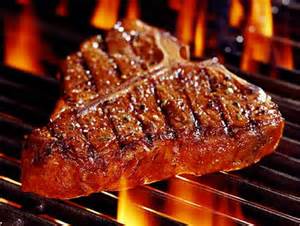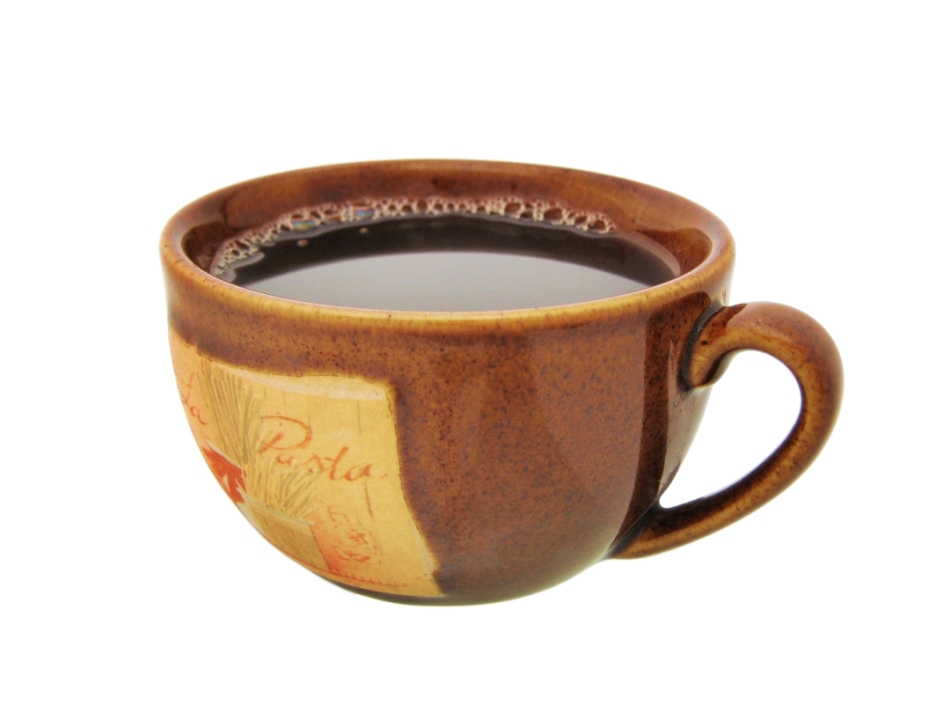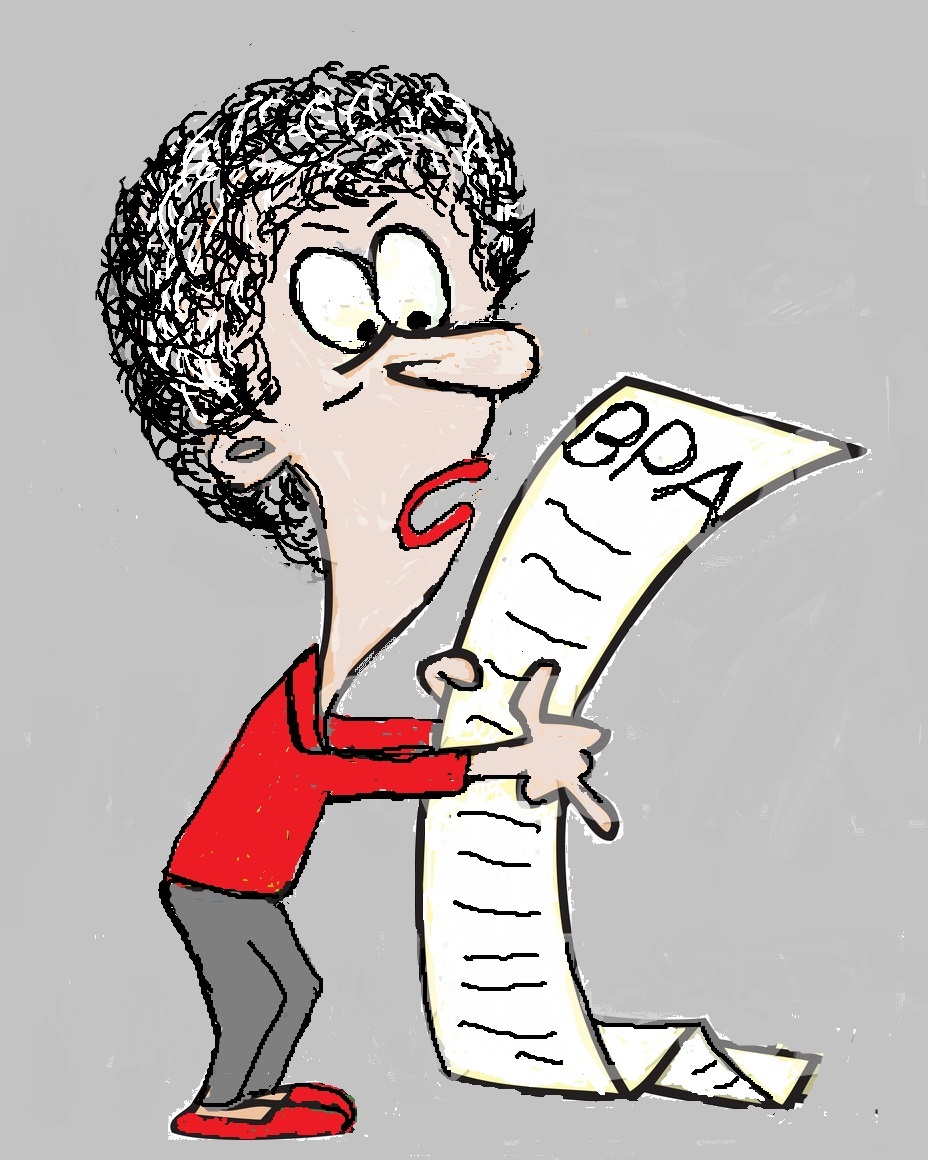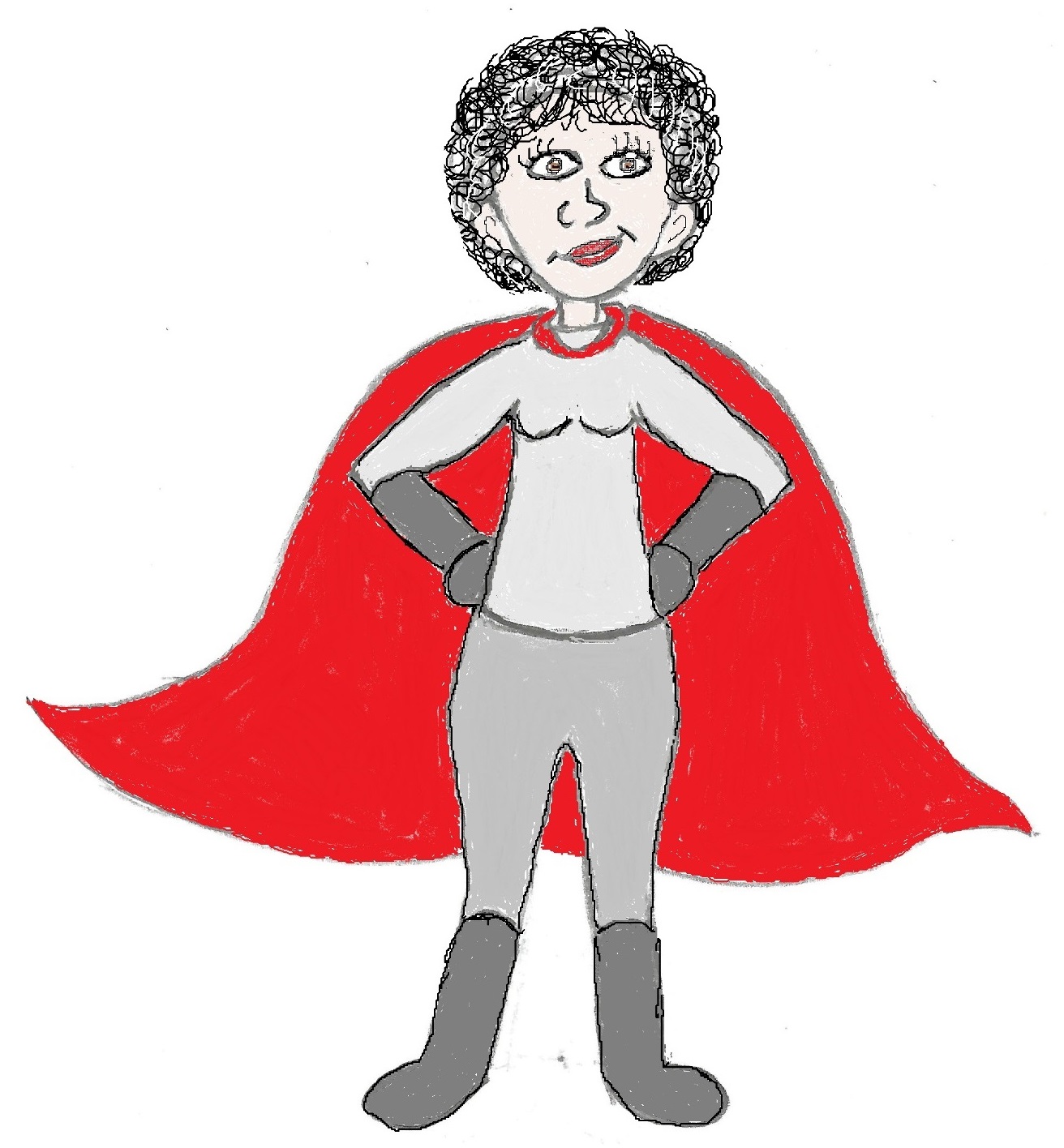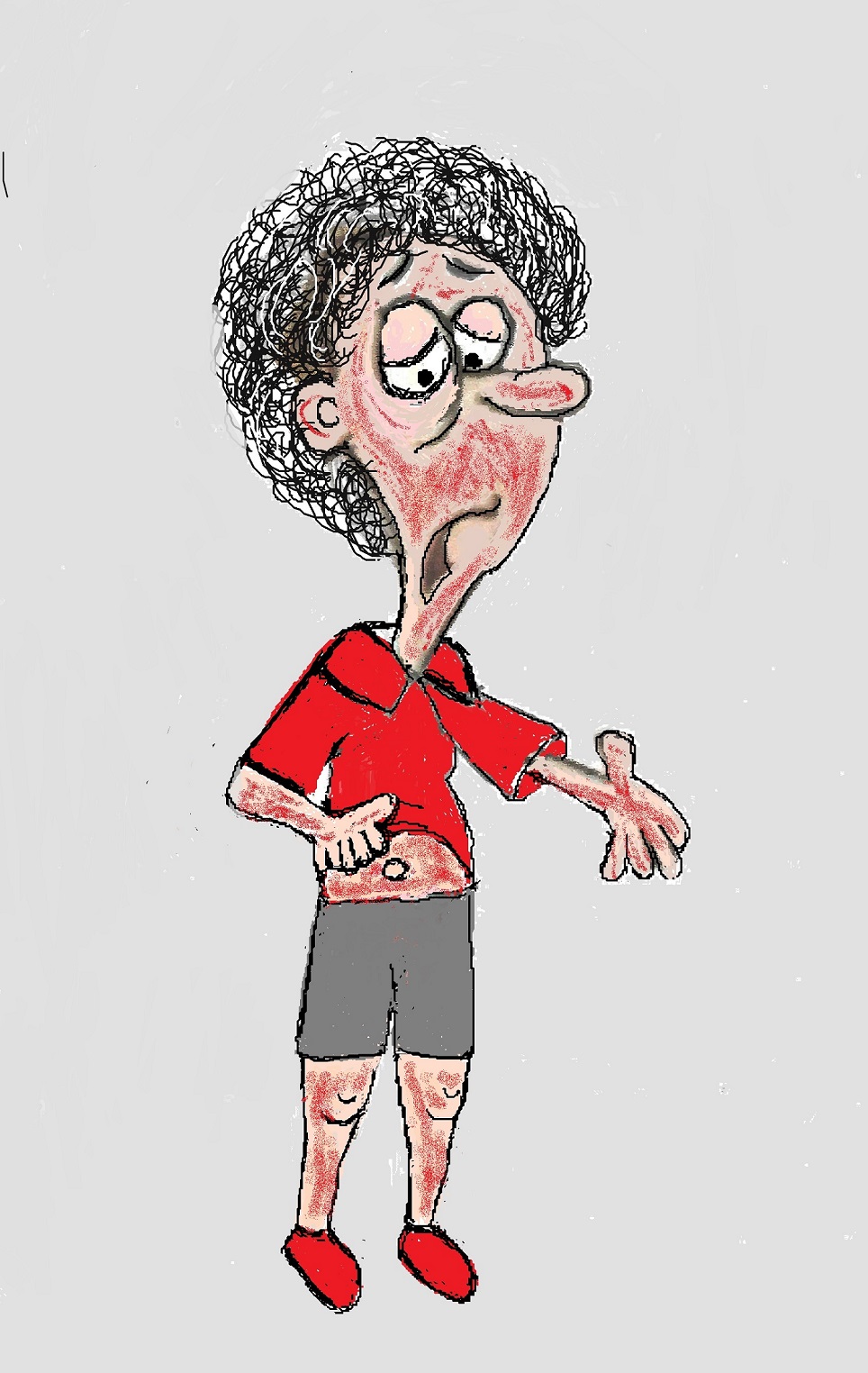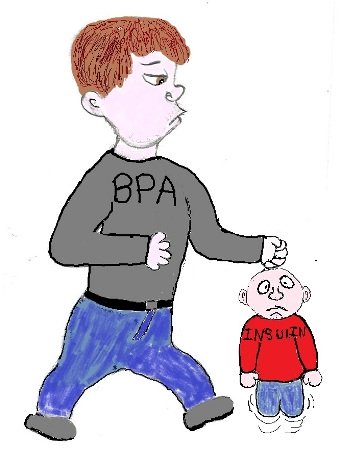- Home
- Toxic Chemicals in Food
- Drinking Soda
Top 11 Reasons To Stop Drinking Soda
Drinking soda is a toxic habit. Whether full of sugar or sugar-free, soda affects everything from your brain to your bones.
Need some incentive to break the habit? Check out these top reasons why drinking soda is toxic to your health.
1. Soda Has Way Too Much Sugar
A regular Pepsi or Coke has 26 gms of sugar or 6.5 teaspoons, sometimes in the form of high fructose corn syrup. The American Heart Association recommends that women consume no more than 6 tsp. of sugar a day and men 7 tsp. a day.
So one soda equals your entire days worth of sugar. And 150-200 empty calories. Empty calories that lead to weight gain and obesity.
Plus, when you consume that much sugar quickly and in liquid form it affects your body. The glucose levels in your blood spikes, which causes your body to release an insulin burst. And your liver responds to this by turning any sugar it can get its hands on into fat.
It also causes inflammation and eventually can lead to insulin resistance. These are some of the reasons why drinking sugar sweetened beverages like soda has been linked to so many health problems. Including obesity, diabetes, gout and heart disease.
Plus, many of the toxic effects from drinking soda found in this top 10 list are caused by the sugar, high fructose corn syrup and artificial sweeteners found in soda.
2. Drinking Soda Increases Your Risk For Diabetes
The glucose spike and fall you get from drinking soda (and other sugary drinks) can create insulin resistance. This is when your body stops responding the way it should to insulin.
Insulin resistance can lead to type 2 diabetes. In fact, an analyses of many of the studies conducted on the effects of sugary drinks reported that people who drink 1–2 servings per day had a 26% greater risk of developing diabetes than those drinking fewer than 1 serving per month.
3. Soda Messes With Your Lungs
Most soda makers sill rely on High Fructose Corn Syrup (HFCS) to sweeten sodas. Drinking sodas sweetened with HFCS has been linked with asthma in US children and high-schoolers.
It has also been linked with chronic bronchitis in US adults aged 20–55. One study reported that drinking non-diet soda 5 or more times a week was associated with nearly twice the likelihood of having chronic bronchitis.
Now you might be wondering - as I was when I came across
these studies – how is that possible. Well, the theory (called enFruAGEs
fructositis) for why HFCS causes lung problems has to do with how your body
handles fructose.
Sodas are sweetened with an HFCS that is 60% fructose and 40% glucose, rather than the 55/45 formula that is generally recognized as safe. Your body doesn’t absorb this excess or free fructose properly, causing GI symptoms like gas, bloating, increased flatulence, and abdominal pain.
The inability to absorb this excess fructose also causes the formation of pro-inflammatory advanced glycation end-products (AGE) in your intestine. (glycation is the bonding of a sugar molecule to a protein or fat molecule). Called enFruAGEs, these glycation end-products signal inflammatory responses that trigger the secretion of excess mucus in your airways and promote chronic respiratory conditions.
4. Drinking Soda Leads To Metabolic Syndrome
Studies have also shown that people who regularly drink sugary drinks like soda tend to develop metabolic syndrome, a condition characterized by a cluster of symptoms, including a big abdomen, elevated blood pressure, raised glucose, elevated triglycerides and low HDL cholesterol (commonly referred to as “good cholesterol”).
5. Soda Weakens Your Bones
Sodas that contain phosphoric acid removes much needed calcium from your bones. Studies have found significantly higher amounts of calcium in the urine of volunteers just two hours after drinking soda.
This loss in calcium can weaken your bones. One 2014 study found that each daily soda increased the chance of hip fracture by 14% for postmenopausal women. And another found that older women who drank cola had lower bone mineral density in their hips.
6. Soda Makes You Fat
Whether you like diet or regular soda, drinking it makes you fat. For regular soda the reasons are fairly obvious. The high sugar content and the calories. Calories that are useless to your body.
What's less obvious is how diet soda can make you fat. Diet sodas are supposed to help you control your weight. But, although you're not drinking empty calories, you're consuming artificial sweeteners.
One 12 oz diet-coke contains approximately 140 mg of aspartame and acesulfame K mix, one 12 oz diet- Dr. Pepper can contains approximately 65 and 22 mg of sucralose and acesulfame, respectively, and one 12-oz Coca-Cola Life can contains 27 mg of stevia.
Several recent studies are making the connection between artificial sweeteners and weight gain. A 2016 cohort study found that in a group of 1454 participants, using low-calorie sweeteners was associated with heavier body weight, a larger waist, and abdominal obesity.
Some researchers believe artificial sweeteners cause you to gain weight because the reward system in the brain normally links sweetness with absorption of calories in the gut. Low-calorie sweeteners, with no caloric density, actually may cause the brain to abandon sweetness as a calorie gauge. So, individuals who consume low-calorie sweeteners may compensate by over-eating in order to experience feeling full.
7. Soda Ages Your Mind
Using information from the Framingham Heart Study Offspring Cohort, which collected data on more than 4,000 people, researchers from Boston University looked at people who consumed more than two sugary drinks a day of any type or more than three sodas per week.
They found that these people have poorer memory, smaller brains and a smaller hippocampus. These are all signs of accelerated brain aging and they are risk factors for early stage Alzheimer's disease.
And it's not just sugary sodas. Diet sodas with artificial sweeteners also affect the brain. The same researchers found that people who drank diet soda daily were almost three times as likely to develop stroke and dementia within the next 10 years when compared to those who did not consume diet soda. And drinking one diet soda per day was associated with smaller brain volume.
8. Diet Soda Messes With Your Gut
Evidence has been mounting over the past 10 years that the health of your gut contributes to your overall health. The foundation of your gut health are the trillions of microorganisms (microbiota) that live in your esophagus, stomach, small and large intestine.
A healthy microbiome has the right types of bacteria in the right proportions. Unfortunately, this delicate balance of many different kinds of microorganisms in your gut can be easily disturbed. Your diet, antibiotics and toxins like arsenic can all mess with your gut.
And several recent studies have found that artificial sweeteners can also disrupt your microbiota.
- Aspartame has been found to increase total bacteria and the abundance of two types of bacteria.
- Saccharin has been shown to not only alter the composition of your microbiota, but also how it functions.
- Sucralose has also been shown to alter intestinal microbiota.
Since gut health is important to your overall health, anything that disturbs how your gut functions can make you sick.
9. Soda Contains Carcinogens
Some of the things added to soda can interact to form cancer-causing chemicals. For example, small amounts of the carcinogen benzene can form in soda when ascorbic acid (Vitamin C) combines with either sodium benzoate or potassium benzoate.
An important factor that increases benzene formation is storage time. More benzene is created when sodas are stored for long periods of time under high temperatures.
Another source of carcinogens is carmel color, a color additive regulated by the FDA. 4-methylimidazole (4-MEI) is released during the manufacture of sodas with caramel color. Sometimes in large amounts.
The FDA recently completed an examination of 400 different foods for the presence of 4-MEI, and concluded that caramel color-containing carbonated beverages contributed to approximately 25% of 4-MEI intake in the US population, accounting for more exposure than any other source.
Another study found that drinking Malta Goya, Pepsi, Diet Pepsi and Pepsi One resulted in 4-MEI levels well above the recommended maximum exposure of (29 μg 4-MEI/day). Of the 12 beverages examined Malta Goya had the highest 4-MEI concentration at 915.8 to 963.3μg/L.
10. Canned Sodas Are Lined With BPA
Bisphenol A, (BPA) is a chemical used to make polycarbonate plastic and epoxy coatings. It lines most of the 131 billion food and beverage cans made in the U.S. annually. Including soda cans.
BPA leaches out of can linings and into whatever’s in the
can, contaminating the contents with this endocrine disrupting toxin. Leaching
is highest with acidic foods and beverages (low pH).
And guess what the pH of soda is? Because soda contains several types of acid, including phosphoric, citric and carbonic, the pH ranges from 2.39 for Pepsi to 4.57 for A&W Diet Root Beer. Anything below a 7 is considered acidic and battery acid has a pH of 1.
Studies have found that the amount of BPA present in canned beverages is much lower than in canned foods. One study found canned beverages had an average BPA concentration of 1.0 ng/ml, while canned foods had a higher average concentration of 40.3 ng/g.
BUT, many scientists who study endocrine disrupting chemicals believe:
THERE IS NO SUCH THING AS A SAFE LEVEL OF EXPOSURE TO BISPHENOLS LIKE BPA.
Hundreds of scientific studies have linked extremely small amounts of BPA, measured in parts per billion and even parts per trillion, to an increased risk of breast and prostate cancer, infertility, type-2 diabetes, obesity, asthma, and behavioral changes in children.
11. Soda Will Probably Kill You
Yes, you read that right. Drinking soda has been linked to an increased risk of dying.
A 2019 population-based cohort study of 451,743 people from 10 countries in Europe, found that “greater consumption of total, sugar-sweetened, and artificially sweetened soft drinks was associated with a higher risk of all-cause mortality. Consumption of artificially sweetened soft drinks was positively associated with deaths from circulatory diseases, and sugar-sweetened soft drinks were associated with deaths from digestive diseases.” JAMA Intern Med
And you don’t need to drink a lot of soda – just 2 a day will do it. So, it's time to kick the toxic soda habit.
SOME OF THE TOXIC INGREDIENTS IN SODA.
Pepsi Wild Cherry Ingredient List
Carbonated water, sugar (55 gms =17 teaspoons), caramel color, flavor (?), caffeine, phosphoric and citric acid.
Stewart's, Fountain Classics, Soda, Orange 'n Cream Ingredients List
Carbonated water, high fructose corn syrup (48 gms of sugar), natural and artificial flavor, orange juice concentrate, sodium benzoate (a preservative), citric acid = benzene, food starch modified, ester gum, yellow 6, brominated soybean oil, BHA (to protect flavor).
How To Stop Drinking Soda
If you drink soda every day it's a habit. A toxic habit that won't be easy to break. But let me say there is life without soda. I only drink one or two a year and I manage to stay hydrated.
In this list you'll find several less toxic substitutes for soda. If you regularly drink soda give them all a try. Especially seltzer water or home carbonation. You'll get the carbonation without the toxic chemicals found in soda.
1. Switch To Seltzer
The easiest way to stop drinking soda is to switch to seltzer water (in cans not plastic). You'll get your carbonation fix without all the sugar, sweetener, caramel coloring, benzene and other additives found in soda.
BUT - you have to read the ingredients list. The least toxic plain seltzers have just water and if flavored they have water and natural flavor.
Then there's toxic flavored seltzers like Sparkling Ice Black Cherry that contains dyes, artificial sweeteners like sucralose and potassium benzoate and citric acid which combine to create benzene.
AND while drinking seltzer from a can is better than from plastic, it will expose you to small amounts of BPA. This really bothers me because I love seltzer water but I don't like the BPA exposure.
I've been considering other options for awhile and came up with only 2 solutions. One is seltzer in glass bottles - but it is hard to find and ridiculously expensive.
The second option is to carbonate at home. There are plenty of home soda/seltzer makers on the market and I've been thinking about buying one. But most of them use plastic bottles.
I did find one Soda Stream Model - the Crystal Home Soda Maker - that I like because it uses glass carafes. And there's plenty of natural flavorings available to spice up homemade seltzer. So home carbonating may be a good option.
BUT, after much searching and research I found the perfect solution. I now drink delicious seltzer water from a stainless steel whipped cream maker.
Whipped cream makers are like soda syphons but they are stainless, use NO2 cartridges and come in a quart size. To make make seltzer in whipped cream makers you just use standard 80z CO2 cartridges (2 per quart) and a quart of very cold water.
2. Drink More Water
Drinking more water is easy to suggest but sometimes hard to do. Plain old water is just boring. So here are a couple of ideas to snazz it up if you've become bored with water.
Try adding a packet or two of True Lemon, True Orange (my favorite) or True Lime to your glass or stainless steel water bottle.
It's just crystalized fruit that will add some subtle flavor to your water. I usually add two packets to my water bottle.
Or you can make fruit infusions. There are plenty of fruit infuser pitchers on the market. But finding one that doesn't have a plastic infuser is tough. (Plastic and acidic fruits or hot water are a bad match).
That's why I make nontoxic fruit infusions using a 2 quart canning jar, a stainless steel tea/coffee infuser, filtered water and of course, organic fruit. Gallon jar kits are also available. Have fun experimenting with lots of different fruit combos to keep water boredom at bay.
3. Brew Some Tea
Iced teas are a great alternative to soda and there are plenty of different kinds for every taste. Antioxidant-rich green tea is a good choice, as are herbal and decaf teas.
Avoid pesticide residues in your iced tea by using organic tea. And keep the brewing process nontoxic by using glass or stainless steel pots. Forget about those plastic counter top electric brewers.
In fact, I use the same mason jar/filter system to make both infused water and tea. Once I'm done brewing I dump the tea leaves, put some fruit into the filter and stick it in the fridge. Couldn't be simpler. If you already have mason jars you can buy the filters seperately for regular and widemouth jars.
Kicking the soda habit won't be easy. But with all the ways that drinking soda can affect your health, replacing soda with less toxic drinks is worth the effort.
